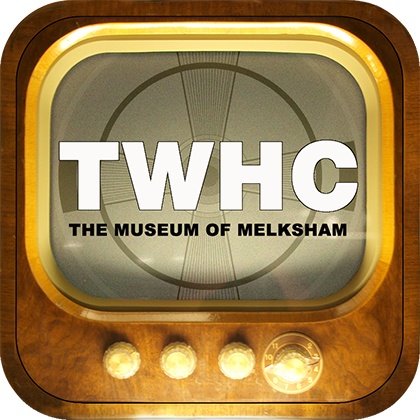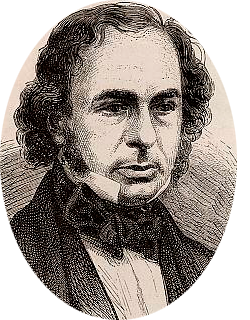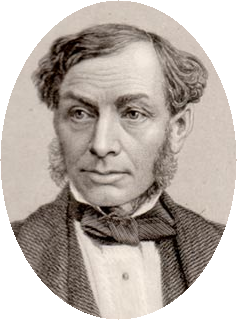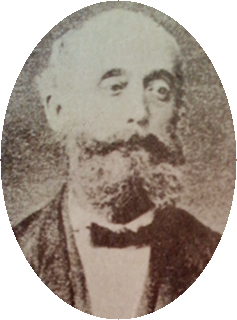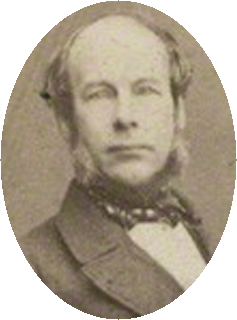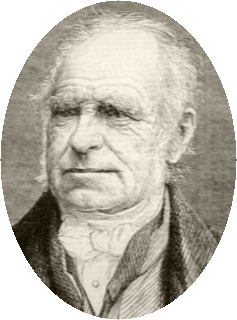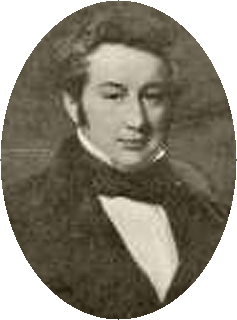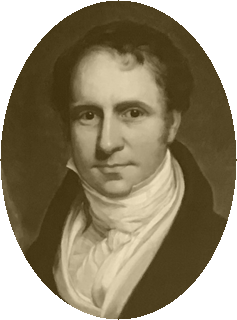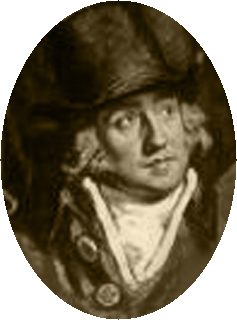Rail Comes to Melksham
On Thursday, 7 September, 1848, Devizes & Wiltshire Gazette published an article relating the events of the grand opening of the Wilts, Somerset, and Weymouth Railway from Thingley to Westbury held at the New Market House in Melksham. The Directors and dignitaries met there after a noon test run down to Westbury and back. The following is a retelling of this article in play form.
Act 1
NARRATOR:
No one accustomed to the ordinarily sedate, quiet appearance of Melksham, could have entered that town on Saturday last without perceiving that some event of more than usual public importance was about to be commemorated. Large and handsome banners waved from the windows of the New Market House -- a merry band was playing through the streets -- young and old, of all classes, had turned out for a holiday, and with smiling faces congratulated each other that the long-looked-for day had arrived which should give a fresh impetus to trade, and bring back those means of employment which for many years past have gradually been transferring themselves to the North of England. We will only say -- may their best hopes be realised, to the mutual advantage of our manufacturing neighbours and those who have planned and carried out a railway through the populous clothing districts of this county.
The Wilts, Somerset, and Weymouth Railway, as most of our readers are probably aware, branches off from the main line of the Great Western at Thingley, between Chippenham and Corsham, (at about the 95 3/4 mile-post from London). From that point to Melksham the distance is about 4 miles and a quarter, from the latter place to Trowbridge 5 miles and a half, and thence to the Westbury station 4 miles -- which is the whole length of line at present completed. The gradients throughout are easy, and the works are admitted on all hands to be exceedingly well constructed. At Melksham the station forms a remarkably pretty object from the road : in fact it is one of the most elegant buildings of the sort on the line, and although not so extensive as those at Trowbridge and Westbury, has attached to it every convenience on the most commodious scale. The contractors, to whom great credit is due, have been Mr J Pritchard (from Thingley to Staverton), Mr M Cranford (from Melksham to Westbury, and the station at Trowbridge), Mr T Lewis (the Melksham station) and Mr Geo Hennett (for laying the permanent way from Thingley to Westbury).
At 12 o'clock a special train, drawn by the Vulture engine, which was driven by Mr Gooch, superintendent of the locomotive department of the Great Western Railway, assisted by Mr Brunel, the engineer, left Bath, with some of the directors and their friends, for the purpose of making an experimental trip on the line, preparatory to its opening for general traffic on Tuesday. On its arrival at Melksham it was received with train, and loud cheering by the hundreds who had assembled to give it welcome, and Mr Long, Sir John Awdry, Col Olivier, and about 40 or 50 other gentlemen having joined their friends from Bath and London, the train proceeded to Trowbridge, where it was received with salutes of cannon, fired from the iron foundry of Messrs Haven, Woodfin and Co., and with other demonstrations of popular approbation. Leaving that station, it then went on to Westbury, where the Directors met with even a more handsome reception, and after a stay of about half an hour returned to Melksham. Here they were again welcomed by the principal inhabitants and a large concourse of the populace, and escorted in procession, with a band of music, to the new market-house, where in a noble room, a dejeuner a la fouchette had been laid out, under the superintendence of Mr Joyce -- a more elegant, and more handsome entertainment was never given. Every delicacy that could be procured was upon the table. There was Champagne, Madeira, and various other wines, in abundance; pines, melons, grapes, and peaches; fish, flesh and fowl; in fact, such a "Breakfast" (for such was the term the good folks of Melksham were pleased to give to their banquet) we never before saw.
John Ledyard Phillips takes the chair; seated on the right is Earl Shelburne and on the left is Walter Long, esq. Other Directors in attendance are:
Let us attest to the loyalty of our company by toasting her Majesty and members of the Royal Family.
[several hearty cheers]
The next toast I have to propose is to the health of a nobleman known to most, if not to all, present -- one whose great talents and virtues had gained for him the respect and regard of the community at large. I allude to the Lord Lieutenant of the County.
[great cheering]
I believe his Lordship would have been among us here were he not unavoidably detained in town, where for months past he has been labouring hard for the country. It really was a subject of delight to him to see the way in which the noble Marquis led the Lords. His great mind seems to fathom every question that arose. And then, in private life, what courtesy he displays! Indeed, I never saw such courtesy in any nobleman.
["hear, hear!"]
Gentlemen, I will give you the health of the Lord Lieutenant of the County, and with the toast I will couple the name of Lord Shelburne. [loud cheering]
LORD SHELBURNE:
Mr Chairman and Gentlemen: I beg to thank you most sincerely for the honour you have done my father in drinking his health in so flattering a manner, and to express my own thanks for having coupled my name with the toast. I can assure you my father would have felt great pleasure, if he could have managed it, to have been here today.
[cheers]
This occasion is interesting to him, not only as Lord Lieutenant of the County, but as a resident in Wiltshire. It is the opening of a new channel of communication to different parts of the country; and I can only say that I hope it will prove alike profitable to the public at large and to those who planned it.
[cheers]
With these brief remarks I will conclude; for Messrs Anstey and Urquhart (whose talkative powers have recently rendered them so conspicuous) have succeeded in giving me such a disgust for anything like a long speech that I have quite determined never to fall into such a mistake myself.
["hear, hear" and laughter]
J L PHILLIPS:
It now becomes my duty to propose the health of our honoured guests -- the Directors of the Wilts, Somerset & Weymouth Railway.
[cheers]
They have kindly responded to our invitation and have given us the pleasure of their company today; and I will name to you two reasons why I think we are under great obligations to them. In the first place they have brought a railway to Melksham!
[loud cheers]
And in the next, I must say that they have, through evil report and good report, gone straightforward to work.
[cheers]
They have had times of great difficulty to contend with -- times which have been felt by every public company, and I might say by almost every private individual -- particularly towards the close of the last year. Yes, Gentlemen: they have felt a great want, and that great want has been the want of money: but, nevertheless, they did what they could -- they persevered; and we have this day had the pleasure of seeing them come from Chippenham in their own carriages, on their own line, to meet us here.
[cheers]
Gentlemen: I beg to give you the health of the Chairman (Mr Long) of the Vice Chairman (Sir John Awdry), and of the other Directors of the Wilts, Somerset, and Weymouth Railway who have honoured us with their company today.
[drink with enthusiastic applause]
Mr Long:
On behalf of the Directors of the Wilts, Somerset, and Weymouth Railway, I beg to return you our very sincere thanks for the kind and very handsome manner in which you have received the toast to our health, and to express to you the deep sense we feel of the compliment you have paid us by inviting us to this very splendid entertainment. Connected as I am by property with this neighbourhood and town, I must (with your Chairman) beg leave to congratulate you upon the opening of railway communication to Melksham. I have often heard it observed, and I believe it to be true, that railways always bring business; and I sincerely hope that such may be the case in this instance.
[loud cheers]
We have, perhaps, been some little time in carrying out our works, for reasons Mr Phillips has expressed -- namely, the want of money; not arising from a disinclination on the part of persons who have taken shares in this neighbourhood to fulfil their engagements; but from the inability of others who have purchased shares in the market. They have fallen short, and consequently the onus has fallen upon the more monied proprietors; but we have endeavoured, with Mr Brunel's assistance, to arrive at this point, and although at present 13 miles only are opened, great progress is being made in other parts of the line, and I hope it will not be long before we shall be able to say that there is a railway from hence to Devizes, to Warminster, to Frome, and to Radstock and the coal districts, which will be a great advantage to such a town as this.
[cheers]
Gentlemen, I hope from what I hear on all sides that trade is reviving among us.
["hear, hear"]
I hear it not only here but from the north; and I trust, ere long, we shall realise the truth of these statements by the grist that will be brought to our mills, and by the increased value of railway property.
[cheers]
But there is one thing which you will forgive me for mentioning. In this neighbourhood, I have no doubt, there are as many gentlemen who have more cash than they require for the purposes of their business, and to them I would say -- you can very easily lend us a little assistance; for, in truth, that is what we want. We want you to help us; and if you will do this -- if you will join us in making up the deficiency that is required -- (for the scheme is one which will tend to our own benefit), you will have one of the best railroads in the world, opening a speedy communication, not only with the towns in your own district, but with all parts -- north, south, east, and west -- of the kingdom; and that will contribute, not only to your prosperity, but to that of the country generally.
[loud cheers]
Mr Long takes to his chair, but then rises again and continues.
I give to the health of the Chairman, who is so well known to all present that I felt I should best consult propriety by simply proposing the toast.
[drink, with 3 times 3]
J L PHILLIPS:
Gentlemen, I have passed my life among you, and I cannot therefore rise without feeling most sensibly the kind manner in which you have drank my health. With regard to duties of a public nature, it has been my good fortune to have had the advantage of the assistance of many excellent gentlemen in this neighbourhood during the last quarter of a century that I have had the honour of acting as one of Her Majesty's Justices of the Peace. I have profited by the experience of the father of the gentleman on my left (Mr Long). I have had the assistance of the father of Sir John Awdry, and of many who are now no more; but there are two gentlemen intimately associated with this neighbourhood -- I mean Mr Ludlow Bruges and the Rev Mr Heathcote -- whose kind aid I can never forget. If I know anything of law, I am indebted for that knowledge to the legal mind of my friend, Mr Ludlow Bruges. He taught me to think and to see things in a legal way; and I trust what I have learnt from him I have been enabled to make use of for the benefit of my friends around me.
["hear, hear"]
And when I come to the strong arm of my friend Mr Heathcote -- for there is no faculty so strong as plain good sense -- I may well congratulate myself on my good fortune in having had two such gentlemen for colleagues.
["hear, hear" and loud cheers]
I cannot sit down without proposing to you their good health.
[loud cheers]
Mr Ludlow Bruges had hoped to have been with us; but I am sorry to say he has not been so well for this last day or two, and he thought, therefore, the excitement of appearing among his friends in his native town would be too much for him. I told him I thought so too, and advised him not to be here; but my friend Mr Heathcote is with us, and I therefore beg to call upon him to respond to the toast. I propose the health of Mr Ludlow Bruges and the Rev Mr Heathcote.
[drink most cordially]
REV HEATHCOTE:
I am in hopes my friend Mr Phillips would have allowed me to keep my seat, but in spite of all entreaties he seemed fully determined to drag me forward. With regard to Mr Ludlow Bruges, he has conferred the greatest benefit upon this town and upon the county at large, and no one regretted his inability to attend public meetings more than himself. Mr Ludlow Bruges possesses my sincere friendship, and on his behalf and my own, I feel much obliged to you for the compliment you have paid us, and beg to drink all your good healths.
[cheers]
J L PHILLIPS:
Gentlemen: We have the pleasure of seeing in our company today Mr Brunel.
[loud cheers]
The name of Brunel is a name which will hereafter belong to history: the talented father and the talented son will find an honourable niche in the future records of this countr
[loud cheers]
It is now 40 years ago -- I am almost afraid, nearer 50 -- that my father took me to see the block machinery at Portsmouth. I was then very young, but I well remember the occasion and the interest it first gave me in machinery, which in my art and line of business has been particularly useful to me. Gentlemen: the mantle of the father has fallen upon the son; and here before us today we have Mr Brunel, who has really brought a railroad to Melksham after all!
[loud cheers]
We have great pleasure in seeing him; and in proposing his health I will couple the name of Mr Ward, who has been the operative man upon the works in this neighbourhood, and is a most able coadjutor of the great engineer. -- I beg to propose to you the health of Mr Brunel and Mr Ward.
[drink amidst immense cheering]
ISAMBARD KINGDOM BRUNEL:
I am very much indebted to the Chairman for the kindness with which he has introduced me to the meeting, as well as to the company for the kind manner in which they had received the toast. I and my friend Mr Ward have been but humble instruments in producing the effects they were then met to commemorate, and I trusted those effects would lead to the gratifying results they had been led to anticipate.
[cheers]
It has been my lot to be present at many openings of railways, but I can assure you that on no occasion have I met with such liberal, elegant, and delightful hospitality as I have witnessed this day in Melksham.
[loud cheers]
Chairman Phillips notices Mr Saunders is about to leave the room and he immediately rises to call him back.
J L PHILLIPS:
Our friend, Mr Saunders, is actually cutting and running off, but that won't do. There are two gentlemen present, acting in the same honourable capacity, to whom we are under great obligations. I mean Mr Saunders the Secretary of the Great Western Railway Company, and Captain O'Brien, the Secretary of the Wilts, Somerset, and Weymouth Railway Company.
[cheers]
Mr Saunders says he has not time. If that is the case I cannot make a speech for him, and he must, therefore, take the will for the deed.
[toast is drunk cordially]
MR SAUNDERS:
For reasons already explained I certainly cannot inflict upon you a long speech. The train waits for no one, and I believe we may just catch it at Chippenham by going at this moment. I feel quite confident, that my friend, Captain O'Brien, will make you a most eloquent address; but I cannot leave without briefly expressing my thanks for your kind hospitality this day, and my assurance on behalf of the Great Western Railway Company that whatever can be done shall be done to promote the trade of the districts through which the line passes, and to render the railway as convenient, as useful, and as beneficial to those districts as we hope it will hereafter prove profitable to the company.
[cheers]
Permit me to say that to the Directors of the Wilts, Somerset & Weymouth Railway, we owe the greatest obligations, for the manner in which the undertaking has been carried on; and to express a hope that they will continue to afford the Great Western Company every assistance in the working of the line, as they have in its construction.
[cheers]
To Mr Long and Sir John Awdry, I can hardly say how deeply we are indebted; but as I observed before, I trust they will continue to give us their assistance, and I pledge myself that the Great Western company will always do their utmost to carry out their obligations in prosecuting this railway to a beneficial end.
[loud cheers]
The Chairman then vacates the Chair, and the Directors with their friends immediately proceed to Chippenham to meet the trains to London and Bath.
No one accustomed to the ordinarily sedate, quiet appearance of Melksham, could have entered that town on Saturday last without perceiving that some event of more than usual public importance was about to be commemorated. Large and handsome banners waved from the windows of the New Market House -- a merry band was playing through the streets -- young and old, of all classes, had turned out for a holiday, and with smiling faces congratulated each other that the long-looked-for day had arrived which should give a fresh impetus to trade, and bring back those means of employment which for many years past have gradually been transferring themselves to the North of England. We will only say -- may their best hopes be realised, to the mutual advantage of our manufacturing neighbours and those who have planned and carried out a railway through the populous clothing districts of this county.
The Wilts, Somerset, and Weymouth Railway, as most of our readers are probably aware, branches off from the main line of the Great Western at Thingley, between Chippenham and Corsham, (at about the 95 3/4 mile-post from London). From that point to Melksham the distance is about 4 miles and a quarter, from the latter place to Trowbridge 5 miles and a half, and thence to the Westbury station 4 miles -- which is the whole length of line at present completed. The gradients throughout are easy, and the works are admitted on all hands to be exceedingly well constructed. At Melksham the station forms a remarkably pretty object from the road : in fact it is one of the most elegant buildings of the sort on the line, and although not so extensive as those at Trowbridge and Westbury, has attached to it every convenience on the most commodious scale. The contractors, to whom great credit is due, have been Mr J Pritchard (from Thingley to Staverton), Mr M Cranford (from Melksham to Westbury, and the station at Trowbridge), Mr T Lewis (the Melksham station) and Mr Geo Hennett (for laying the permanent way from Thingley to Westbury).
At 12 o'clock a special train, drawn by the Vulture engine, which was driven by Mr Gooch, superintendent of the locomotive department of the Great Western Railway, assisted by Mr Brunel, the engineer, left Bath, with some of the directors and their friends, for the purpose of making an experimental trip on the line, preparatory to its opening for general traffic on Tuesday. On its arrival at Melksham it was received with train, and loud cheering by the hundreds who had assembled to give it welcome, and Mr Long, Sir John Awdry, Col Olivier, and about 40 or 50 other gentlemen having joined their friends from Bath and London, the train proceeded to Trowbridge, where it was received with salutes of cannon, fired from the iron foundry of Messrs Haven, Woodfin and Co., and with other demonstrations of popular approbation. Leaving that station, it then went on to Westbury, where the Directors met with even a more handsome reception, and after a stay of about half an hour returned to Melksham. Here they were again welcomed by the principal inhabitants and a large concourse of the populace, and escorted in procession, with a band of music, to the new market-house, where in a noble room, a dejeuner a la fouchette had been laid out, under the superintendence of Mr Joyce -- a more elegant, and more handsome entertainment was never given. Every delicacy that could be procured was upon the table. There was Champagne, Madeira, and various other wines, in abundance; pines, melons, grapes, and peaches; fish, flesh and fowl; in fact, such a "Breakfast" (for such was the term the good folks of Melksham were pleased to give to their banquet) we never before saw.
John Ledyard Phillips takes the chair; seated on the right is Earl Shelburne and on the left is Walter Long, esq. Other Directors in attendance are:
- Sir John Awdry (Vice Chairman)
- Col. Olivier
- Col. Phipps
- W Sheppard, esq.
- Capt. Scobel
- M J Festing, esq.
- R H B Hale, esq., MP
- J B Fuller, esq.
- Capt Dewell
- Capt. Gaisford
- Capt. Meredith
- Mr Brunel
- Mr Saunders (the Secretary to the Great Western Company)
- Mr Ward (the resident engineer of the Wilts, Somerset and Weymouth line)
- Mr Seymour Clark (of Paddington)
- Captain Mac Nair
- Mr Grimes
- Mr Macauley, and Mr Blackwell (the assistant engineers)
- Mr John Pritchard
- Mr Matthew Cranford
- Mr T Lewis and Mr George Hennett (the contractors)
- the Rev T Heathcote
- Mr N Heathcote
- Mr Justly Wither Awdry (1818-1919) solicitor
- Mr Moule
- Mr George Cranmer Kenrick (1805-1869) physician
- Mr Gore
- Mr George Plimmer (1805-1865) physician
- Mr Philip Phelps (1808-1889) insurance and land agent
- Mr Smith
- Mr Fowler
- Mr E Phillips
- Mr King
- Mr T Bruges
- Mr Jonathan Grant
- Mr T Lavington
- Mr J Neate
- Mr J Dark
- Mr Redman
- Mr James Stratton (1815-1889) master grocer
- Mr James Taylor
Let us attest to the loyalty of our company by toasting her Majesty and members of the Royal Family.
[several hearty cheers]
The next toast I have to propose is to the health of a nobleman known to most, if not to all, present -- one whose great talents and virtues had gained for him the respect and regard of the community at large. I allude to the Lord Lieutenant of the County.
[great cheering]
I believe his Lordship would have been among us here were he not unavoidably detained in town, where for months past he has been labouring hard for the country. It really was a subject of delight to him to see the way in which the noble Marquis led the Lords. His great mind seems to fathom every question that arose. And then, in private life, what courtesy he displays! Indeed, I never saw such courtesy in any nobleman.
["hear, hear!"]
Gentlemen, I will give you the health of the Lord Lieutenant of the County, and with the toast I will couple the name of Lord Shelburne. [loud cheering]
LORD SHELBURNE:
Mr Chairman and Gentlemen: I beg to thank you most sincerely for the honour you have done my father in drinking his health in so flattering a manner, and to express my own thanks for having coupled my name with the toast. I can assure you my father would have felt great pleasure, if he could have managed it, to have been here today.
[cheers]
This occasion is interesting to him, not only as Lord Lieutenant of the County, but as a resident in Wiltshire. It is the opening of a new channel of communication to different parts of the country; and I can only say that I hope it will prove alike profitable to the public at large and to those who planned it.
[cheers]
With these brief remarks I will conclude; for Messrs Anstey and Urquhart (whose talkative powers have recently rendered them so conspicuous) have succeeded in giving me such a disgust for anything like a long speech that I have quite determined never to fall into such a mistake myself.
["hear, hear" and laughter]
J L PHILLIPS:
It now becomes my duty to propose the health of our honoured guests -- the Directors of the Wilts, Somerset & Weymouth Railway.
[cheers]
They have kindly responded to our invitation and have given us the pleasure of their company today; and I will name to you two reasons why I think we are under great obligations to them. In the first place they have brought a railway to Melksham!
[loud cheers]
And in the next, I must say that they have, through evil report and good report, gone straightforward to work.
[cheers]
They have had times of great difficulty to contend with -- times which have been felt by every public company, and I might say by almost every private individual -- particularly towards the close of the last year. Yes, Gentlemen: they have felt a great want, and that great want has been the want of money: but, nevertheless, they did what they could -- they persevered; and we have this day had the pleasure of seeing them come from Chippenham in their own carriages, on their own line, to meet us here.
[cheers]
Gentlemen: I beg to give you the health of the Chairman (Mr Long) of the Vice Chairman (Sir John Awdry), and of the other Directors of the Wilts, Somerset, and Weymouth Railway who have honoured us with their company today.
[drink with enthusiastic applause]
Mr Long:
On behalf of the Directors of the Wilts, Somerset, and Weymouth Railway, I beg to return you our very sincere thanks for the kind and very handsome manner in which you have received the toast to our health, and to express to you the deep sense we feel of the compliment you have paid us by inviting us to this very splendid entertainment. Connected as I am by property with this neighbourhood and town, I must (with your Chairman) beg leave to congratulate you upon the opening of railway communication to Melksham. I have often heard it observed, and I believe it to be true, that railways always bring business; and I sincerely hope that such may be the case in this instance.
[loud cheers]
We have, perhaps, been some little time in carrying out our works, for reasons Mr Phillips has expressed -- namely, the want of money; not arising from a disinclination on the part of persons who have taken shares in this neighbourhood to fulfil their engagements; but from the inability of others who have purchased shares in the market. They have fallen short, and consequently the onus has fallen upon the more monied proprietors; but we have endeavoured, with Mr Brunel's assistance, to arrive at this point, and although at present 13 miles only are opened, great progress is being made in other parts of the line, and I hope it will not be long before we shall be able to say that there is a railway from hence to Devizes, to Warminster, to Frome, and to Radstock and the coal districts, which will be a great advantage to such a town as this.
[cheers]
Gentlemen, I hope from what I hear on all sides that trade is reviving among us.
["hear, hear"]
I hear it not only here but from the north; and I trust, ere long, we shall realise the truth of these statements by the grist that will be brought to our mills, and by the increased value of railway property.
[cheers]
But there is one thing which you will forgive me for mentioning. In this neighbourhood, I have no doubt, there are as many gentlemen who have more cash than they require for the purposes of their business, and to them I would say -- you can very easily lend us a little assistance; for, in truth, that is what we want. We want you to help us; and if you will do this -- if you will join us in making up the deficiency that is required -- (for the scheme is one which will tend to our own benefit), you will have one of the best railroads in the world, opening a speedy communication, not only with the towns in your own district, but with all parts -- north, south, east, and west -- of the kingdom; and that will contribute, not only to your prosperity, but to that of the country generally.
[loud cheers]
Mr Long takes to his chair, but then rises again and continues.
I give to the health of the Chairman, who is so well known to all present that I felt I should best consult propriety by simply proposing the toast.
[drink, with 3 times 3]
J L PHILLIPS:
Gentlemen, I have passed my life among you, and I cannot therefore rise without feeling most sensibly the kind manner in which you have drank my health. With regard to duties of a public nature, it has been my good fortune to have had the advantage of the assistance of many excellent gentlemen in this neighbourhood during the last quarter of a century that I have had the honour of acting as one of Her Majesty's Justices of the Peace. I have profited by the experience of the father of the gentleman on my left (Mr Long). I have had the assistance of the father of Sir John Awdry, and of many who are now no more; but there are two gentlemen intimately associated with this neighbourhood -- I mean Mr Ludlow Bruges and the Rev Mr Heathcote -- whose kind aid I can never forget. If I know anything of law, I am indebted for that knowledge to the legal mind of my friend, Mr Ludlow Bruges. He taught me to think and to see things in a legal way; and I trust what I have learnt from him I have been enabled to make use of for the benefit of my friends around me.
["hear, hear"]
And when I come to the strong arm of my friend Mr Heathcote -- for there is no faculty so strong as plain good sense -- I may well congratulate myself on my good fortune in having had two such gentlemen for colleagues.
["hear, hear" and loud cheers]
I cannot sit down without proposing to you their good health.
[loud cheers]
Mr Ludlow Bruges had hoped to have been with us; but I am sorry to say he has not been so well for this last day or two, and he thought, therefore, the excitement of appearing among his friends in his native town would be too much for him. I told him I thought so too, and advised him not to be here; but my friend Mr Heathcote is with us, and I therefore beg to call upon him to respond to the toast. I propose the health of Mr Ludlow Bruges and the Rev Mr Heathcote.
[drink most cordially]
REV HEATHCOTE:
I am in hopes my friend Mr Phillips would have allowed me to keep my seat, but in spite of all entreaties he seemed fully determined to drag me forward. With regard to Mr Ludlow Bruges, he has conferred the greatest benefit upon this town and upon the county at large, and no one regretted his inability to attend public meetings more than himself. Mr Ludlow Bruges possesses my sincere friendship, and on his behalf and my own, I feel much obliged to you for the compliment you have paid us, and beg to drink all your good healths.
[cheers]
J L PHILLIPS:
Gentlemen: We have the pleasure of seeing in our company today Mr Brunel.
[loud cheers]
The name of Brunel is a name which will hereafter belong to history: the talented father and the talented son will find an honourable niche in the future records of this countr
[loud cheers]
It is now 40 years ago -- I am almost afraid, nearer 50 -- that my father took me to see the block machinery at Portsmouth. I was then very young, but I well remember the occasion and the interest it first gave me in machinery, which in my art and line of business has been particularly useful to me. Gentlemen: the mantle of the father has fallen upon the son; and here before us today we have Mr Brunel, who has really brought a railroad to Melksham after all!
[loud cheers]
We have great pleasure in seeing him; and in proposing his health I will couple the name of Mr Ward, who has been the operative man upon the works in this neighbourhood, and is a most able coadjutor of the great engineer. -- I beg to propose to you the health of Mr Brunel and Mr Ward.
[drink amidst immense cheering]
ISAMBARD KINGDOM BRUNEL:
I am very much indebted to the Chairman for the kindness with which he has introduced me to the meeting, as well as to the company for the kind manner in which they had received the toast. I and my friend Mr Ward have been but humble instruments in producing the effects they were then met to commemorate, and I trusted those effects would lead to the gratifying results they had been led to anticipate.
[cheers]
It has been my lot to be present at many openings of railways, but I can assure you that on no occasion have I met with such liberal, elegant, and delightful hospitality as I have witnessed this day in Melksham.
[loud cheers]
Chairman Phillips notices Mr Saunders is about to leave the room and he immediately rises to call him back.
J L PHILLIPS:
Our friend, Mr Saunders, is actually cutting and running off, but that won't do. There are two gentlemen present, acting in the same honourable capacity, to whom we are under great obligations. I mean Mr Saunders the Secretary of the Great Western Railway Company, and Captain O'Brien, the Secretary of the Wilts, Somerset, and Weymouth Railway Company.
[cheers]
Mr Saunders says he has not time. If that is the case I cannot make a speech for him, and he must, therefore, take the will for the deed.
[toast is drunk cordially]
MR SAUNDERS:
For reasons already explained I certainly cannot inflict upon you a long speech. The train waits for no one, and I believe we may just catch it at Chippenham by going at this moment. I feel quite confident, that my friend, Captain O'Brien, will make you a most eloquent address; but I cannot leave without briefly expressing my thanks for your kind hospitality this day, and my assurance on behalf of the Great Western Railway Company that whatever can be done shall be done to promote the trade of the districts through which the line passes, and to render the railway as convenient, as useful, and as beneficial to those districts as we hope it will hereafter prove profitable to the company.
[cheers]
Permit me to say that to the Directors of the Wilts, Somerset & Weymouth Railway, we owe the greatest obligations, for the manner in which the undertaking has been carried on; and to express a hope that they will continue to afford the Great Western Company every assistance in the working of the line, as they have in its construction.
[cheers]
To Mr Long and Sir John Awdry, I can hardly say how deeply we are indebted; but as I observed before, I trust they will continue to give us their assistance, and I pledge myself that the Great Western company will always do their utmost to carry out their obligations in prosecuting this railway to a beneficial end.
[loud cheers]
The Chairman then vacates the Chair, and the Directors with their friends immediately proceed to Chippenham to meet the trains to London and Bath.
Act 2
J TAYLOR:
Let me take the opportunity in the course of the afternoon of paying a well deserved compliment to the contractors for the respectable behaviour they had enforced among the men in their employ during the construction of the line, and for the very excellent way in which they had completed the work in which they had engaged; and proposed the health of those gentlemen, which was readily responded to.
MR LEWIS:
Mr Chairman: I rise with much pleasure to return you our sincere thanks for the very flattering manner in which you have been pleased to notice my fellow contractors and myself; and also to you, gentlemen, for the warm and enthusiastic manner in which you received that toast. I trust that the directors, accompanied by their engineers, who have this day surveyed that portion of the line about to be opened to the public, are perfectly satisfied with the execution of the work. For my fellow contractors I can safely say, they have used their best endeavours to execute the works entrusted to them, not only according to the letter, but also according to the spirit of their contracts.
["hear, hear" and cheers]
With regard to that portion of the undertaking which has been allotted to myself, modesty forbids me to speak. I leave the Engineers to report to the Director their opinion; observing, in the language of my friend, Dr Pangloss:
If you will allow me, I would say one work in allusion to a toast that was given by our previous Chairman -- I mean "the health of the Engineers." Not one remark that your Chairman uttered was more than Mr Brunel deserves; and it would be a matter of supererogation on my part were I to attempt to add a single feather to the plume of that great man's fame. The works he has executed in this country and in foreign lands will remain monuments of his talents long after he is removed from this sublunary sphere. But there are two other engineers, who have been more immediately connected with the contractors, that deserve our especial thanks. I mean Mr Ward and Capt McNair.
[cheers]
The conduct of those gentlemen deserves publicly our especial thanks; their kindness and urbanity of manner have only been surpassed by their zeal for the interests of their employers. I will conclude by quoting a portion of the lines of our immortal bard (Shakespeare), in his opening of Richard the 3rd --
And now, gentlemen, I have again to thank you for the honour you have done us in drinking our good healths, and in return, with the greatest sincerity we drink yours--
The narrator concludes by describing the festivities on the opening day of the train service to the general public.
Tuesday, 5 November, 1848
NARRATOR:
The opening of the finished portion of the line for public traffic took place this morning, and it being the day of our Great Cheese Market, the town assumed a remarkably busy appearance. The early trains, which were gaily decorated with laurels, bore a considerable number of passengers, whose arrival and departure were witnessed by a large concourse of people. The Chippenham station (being, for the present, made the point of junction between the Westbury trains and those to London and Exeter), has been enlarged by two additional sets of rails, and presents a much more active appearance than heretofore. The curve at the points for the down Westbury rail is rather sharp and sudden, but, as it is only used for starting the train, this is unimportant, for the train has not acquired any material speed when it reaches the down Exeter line.
THE END
Let me take the opportunity in the course of the afternoon of paying a well deserved compliment to the contractors for the respectable behaviour they had enforced among the men in their employ during the construction of the line, and for the very excellent way in which they had completed the work in which they had engaged; and proposed the health of those gentlemen, which was readily responded to.
MR LEWIS:
Mr Chairman: I rise with much pleasure to return you our sincere thanks for the very flattering manner in which you have been pleased to notice my fellow contractors and myself; and also to you, gentlemen, for the warm and enthusiastic manner in which you received that toast. I trust that the directors, accompanied by their engineers, who have this day surveyed that portion of the line about to be opened to the public, are perfectly satisfied with the execution of the work. For my fellow contractors I can safely say, they have used their best endeavours to execute the works entrusted to them, not only according to the letter, but also according to the spirit of their contracts.
["hear, hear" and cheers]
With regard to that portion of the undertaking which has been allotted to myself, modesty forbids me to speak. I leave the Engineers to report to the Director their opinion; observing, in the language of my friend, Dr Pangloss:
- "Of their own merits modest men are dumb,"
"Applaudite et veletie -- Terence -- Mun."
If you will allow me, I would say one work in allusion to a toast that was given by our previous Chairman -- I mean "the health of the Engineers." Not one remark that your Chairman uttered was more than Mr Brunel deserves; and it would be a matter of supererogation on my part were I to attempt to add a single feather to the plume of that great man's fame. The works he has executed in this country and in foreign lands will remain monuments of his talents long after he is removed from this sublunary sphere. But there are two other engineers, who have been more immediately connected with the contractors, that deserve our especial thanks. I mean Mr Ward and Capt McNair.
[cheers]
The conduct of those gentlemen deserves publicly our especial thanks; their kindness and urbanity of manner have only been surpassed by their zeal for the interests of their employers. I will conclude by quoting a portion of the lines of our immortal bard (Shakespeare), in his opening of Richard the 3rd --
- "Now is the winter of our discontent
Made glorious summer by these bold directors,
And all the clouds that hover;d o'er our heads,
In the completion of the Railway buried.
Now are our brows bound with victorious wreaths;
Our stern alarms turn'd to a merry meeting:
Stern visaged engineers applaud with smiles
The fall completion of our labours done"
And now, gentlemen, I have again to thank you for the honour you have done us in drinking our good healths, and in return, with the greatest sincerity we drink yours--
- "May every blessing wished by men of sense --
Health, peace, and ample competence--
Attend you and yours"
The narrator concludes by describing the festivities on the opening day of the train service to the general public.
Tuesday, 5 November, 1848
NARRATOR:
The opening of the finished portion of the line for public traffic took place this morning, and it being the day of our Great Cheese Market, the town assumed a remarkably busy appearance. The early trains, which were gaily decorated with laurels, bore a considerable number of passengers, whose arrival and departure were witnessed by a large concourse of people. The Chippenham station (being, for the present, made the point of junction between the Westbury trains and those to London and Exeter), has been enlarged by two additional sets of rails, and presents a much more active appearance than heretofore. The curve at the points for the down Westbury rail is rather sharp and sudden, but, as it is only used for starting the train, this is unimportant, for the train has not acquired any material speed when it reaches the down Exeter line.
THE END
